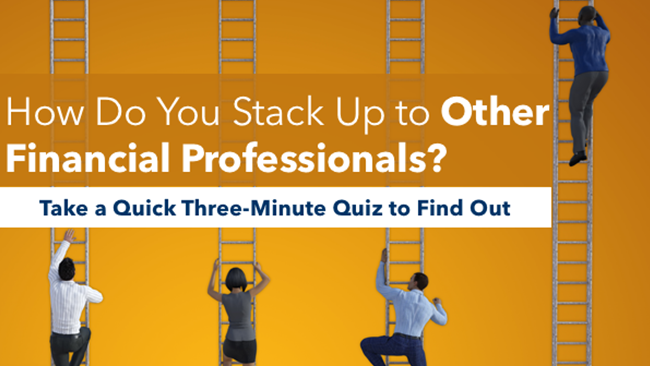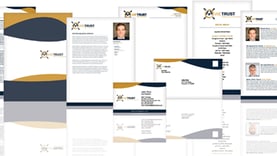I don’t think there’s a workshop PowerPoint on the planet that directly results in sales of financial products. So far, I’ve never seen a financial presentation end with the presenter passing out applications for financial products and attendees getting out their checkbooks to buy. Solid workshop and seminar presentations can result in the right fit prospects raising their hands to meet with you.

Presentations are More Than a PowerPoint
Financial professionals will often ask me about how they can turn more workshop and seminar attendees into clients. Many are interested in the content used in a PowerPoint presentation. Maybe they're looking for a Social Security, general retirement, or tax-free retirement income presentation. They are focused on the content. Many will ask, “How much can I expect to sell?” or “How many people will I close on average?” Some want to know how effective the presentation is, which is a polite way of them asking, “How much will I sell if I use your presentation?”
The success or failure of your workshop will have little to do with the content of the presentation. Many financial professionals will focus too much on the details of the PowerPoint itself. However, your success has more to do with the events leading up to the presentation, the opening statements, the closing comments, and the call to action. If you have been effective in your communication, they will want to schedule time with you to begin your process.
Creating an Impressive Experience
Perception is everything. A great workshop creates an experience for the audience, and a perceived value for their cost of admission. Even if the cost is their personal time and nothing else, they have paid to be at your event. Their time to drive to the event, sit through your presentation, and then drive home is valuable. Your team needs to create an experience that is memorable, inspiring, and worth attending.
Rising Above Sales Stereotypes
There’s a negative image that is conjured up when we hear “traveling salesman.” You might see a picture in your mind of a slick shyster pulling into town on his horse drawn wagon. He sets up shop, pulls back the curtain, jumps on his soapbox, and begins barking at the town folk about his wares. Then quick as a flash he tears down shop, and flies out of town before the mob realizes he’s a fraud.
Do you want to look like a traveling salesman, or a celebrity speaker? Make sure you have enough team members to create a professional event for your audience, with you as the star. Even a one-person play isn’t complete without ticket takers, ushers, and a narrator to start the show.
Assembling Your Team
There are many roles to play when pulling together a workshop. Someone will need to set up, tear down, check in guests, be the master of ceremonies to set the tone and take care of housekeeping, and maybe a guest speaker will deliver a powerful and inspiring message. Surround yourself with a team of supporting cast members who can reinforce your message and improve your professional appearance.
Registration and Scheduling
I believe financial professionals should have at least one person in charge of registration before the event and to schedule appointments after the event. This person’s role might include setting up a registration table, checking people into the event, taking tickets, and directing traffic for arriving guests. The same person may be tasked with scheduling appointments after the workshop as well. This person should be friendly and engaging.
Organized Introduction
Next up you need an introduction from the master of ceremonies (MC). This person should be comfortable speaking in front of an audience, but not necessarily a professional speaker. Their role will be to handle housekeeping items, provide clarity of things to come, and to introduce the guest speaker for the event. It would even be acceptable for the MC to present off of a written document. Imagine your MC holding an outline to discuss the do’s and don’ts for the evening. They should remind attendees to turn cell phones off, point out where the restrooms are, and inform the attendees what will happen before, during, and after. Finally with a copy of the guest speaker’s biography in hand, the MC introduces you and welcomes you to center stage. None of this needs to be memorized by the MC, but it does need to be well organized and clearly communicated.
Speaking to Your Prospects
Now it's show time. You’ve been welcomed to the stage. Do not underestimate the importance of your opening message. You must identify with your audience and capture their attention. What your do next will have a greater impact on whether people pay attention to you throughout the workshop and decide to meet with you afterword than any facts and figures you might share during the remainder of the presentation.
Share Your "Why"
We highly encourage all financial professionals who are speaking at workshop events to share the “WHY” they do what they do. Identify with your audience. Share a personal story about your personal struggles that is relatable and emotional. Be vulnerable. Give your audience a chance to say, “me too, I’ve been there.” Don’t start by bragging about yourself. Don’t tell your audience how great you are. It will evoke the dreaded “so what” response.
Connect with the Audience
Know your company’s purpose, cause, and belief. Right out of the shoot tell a great story about why you believe what you believe, and why you get up every day, and why anyone should care. Communicate your company’s philosophy with conviction. This is an opportunity to get to a personal level with your audience. Maybe you tell a story from your childhood of tragedy or suffering. Let them know you're a person too, with both good and bad experiences that shaped your view of the world.
Present Powerful and Concise Content
Once you have their attention you can get into the presentation itself. The presentation will be filled with opportunities to demonstrate competency. You need to deliver the content in a confident manner. How much detail should you provide? The answer is....just enough. The highest ranked speakers keep their talk high on emotion and low on logic. They never get into the weeds. Too many facts and too much logic won’t make you look smarter. It will have the opposite effect. When you speak above your audience they feel uncomfortable. Their perception of you deteriorates quickly. The more uncomfortable you make them feel, the more you destroy their precious trust and your credibility.
Before your close, leave your audience with three or more great ideas to enhance their life. These should be simple ideas to understand and improve their situation. These ideas should be positive and plain spoken. Be plausible, and avoid absolutes and exaggerated statements.
Close with a Call to Action
After you've confidently delivered the content in a competent manner it's time to close out the workshop. We're at the final bookend of your presentation.Your presentation’s close must create a clear call to action and identify who is a right fit for your process and who would be wasting their time visiting with you. This is a part of your presentation that is heavy on emotion and light on logic. Since your audience makes decisions based on emotion, and justifies it with logic, you don’t want to be careless with the close.
You should be answering anticipated questions that your audience may be thinking but not asking. What happens next? How much will this cost? What is the commitment you are asking for? Who’s a good candidate for your firm, and who is not a good fit?
Strive to eliminate any barriers for the right fit prospects to take the next step. Value your firm and your services. Don’t beg for appointments. Many financial professionals will offer attendees a "free" consultation, or a “complementary appointment.” Instead you should position your firm’s time as a valuable resource. Their attendance at your presentation gives them the opportunity to schedule a one-hour Q&A with you. Your firm is donating one hour of your time. For those who are committed to becoming better educated, your firm is willing to give your precious time as a sign of appreciation.
Save the Q&A for a Scheduled Meeting
Finally, get out of there! Do not stand around and answer questions. As the guest speaker, your presence and your message was the highlight of the act. Standing around and answering questions for 30 minutes devalues your celebrity status. If the attendees have questions and want the to talk to the authority on the subject (you), they’ve been given a clear path. You’ve explained to them what the next steps are, and how to take advantage of your firm's generosity.
It may feel good to stand around and answer questions, but you'll leave little reason for them to experience your company’s process. By answering all their first level questions at the workshop, they will feel fulfilled and have little motivation to visit with you in private. In addition, some of the questions that attendees have will bore others and some of the questions attendees have might be so specific that it would be a breach of privacy to discuss in public.
Whether you are a workshop veteran, or just getting started, focus more on the bookends of your presentation to be more effective. Refine your beginning and ending, and worry less about specific details of the presentation content. Attendees will be more likely to meet with you if you emotionally connect with them. Facts, figures and logic won’t win you any friends, or get you any appointments with qualified prospects.
What if your prospects do not schedule meetings? Do you have an automated process to nurture them until they are ready to make a financial decision? Check out how Prospecting 365 can help you nurture prospects and clients.






